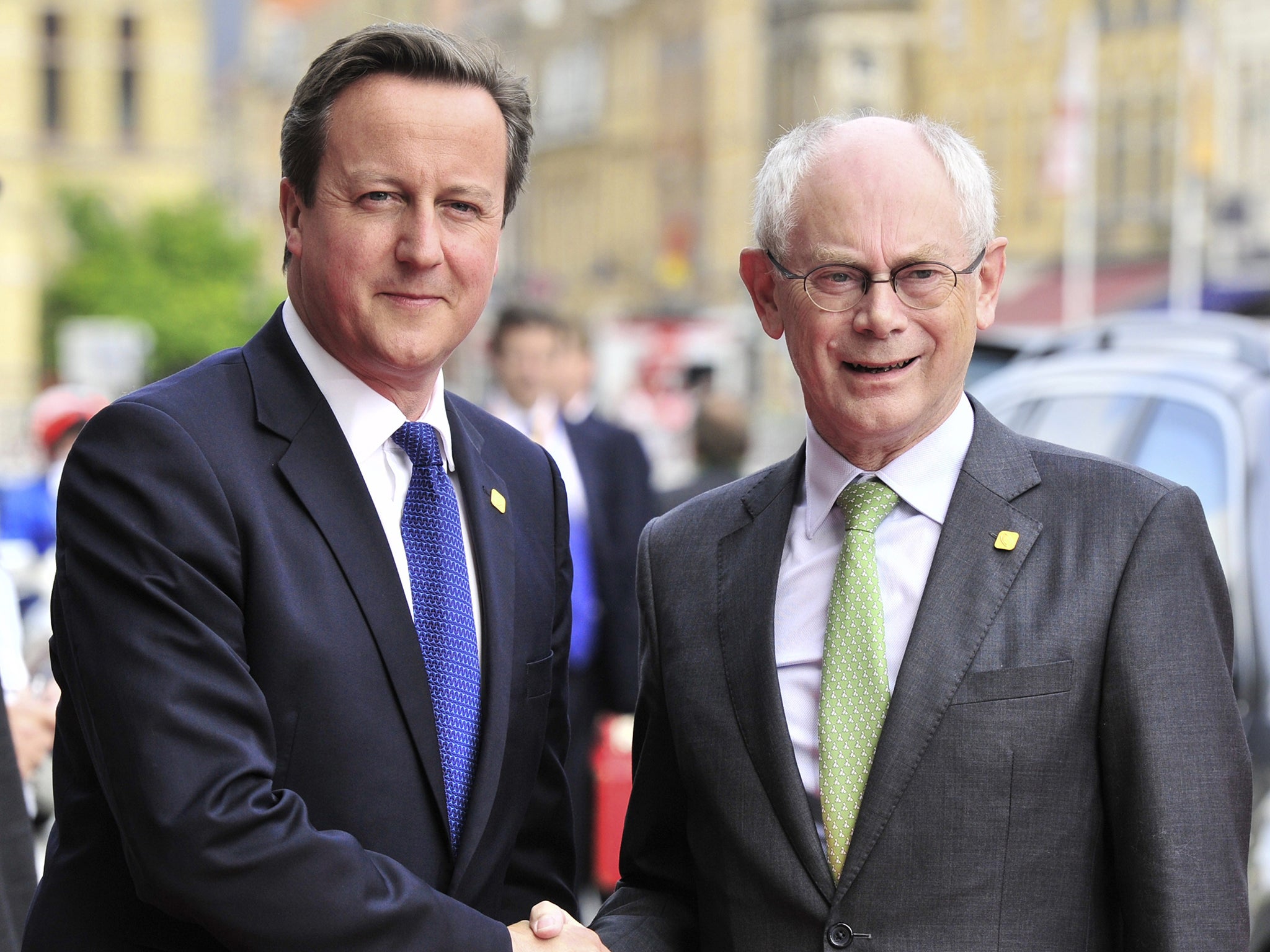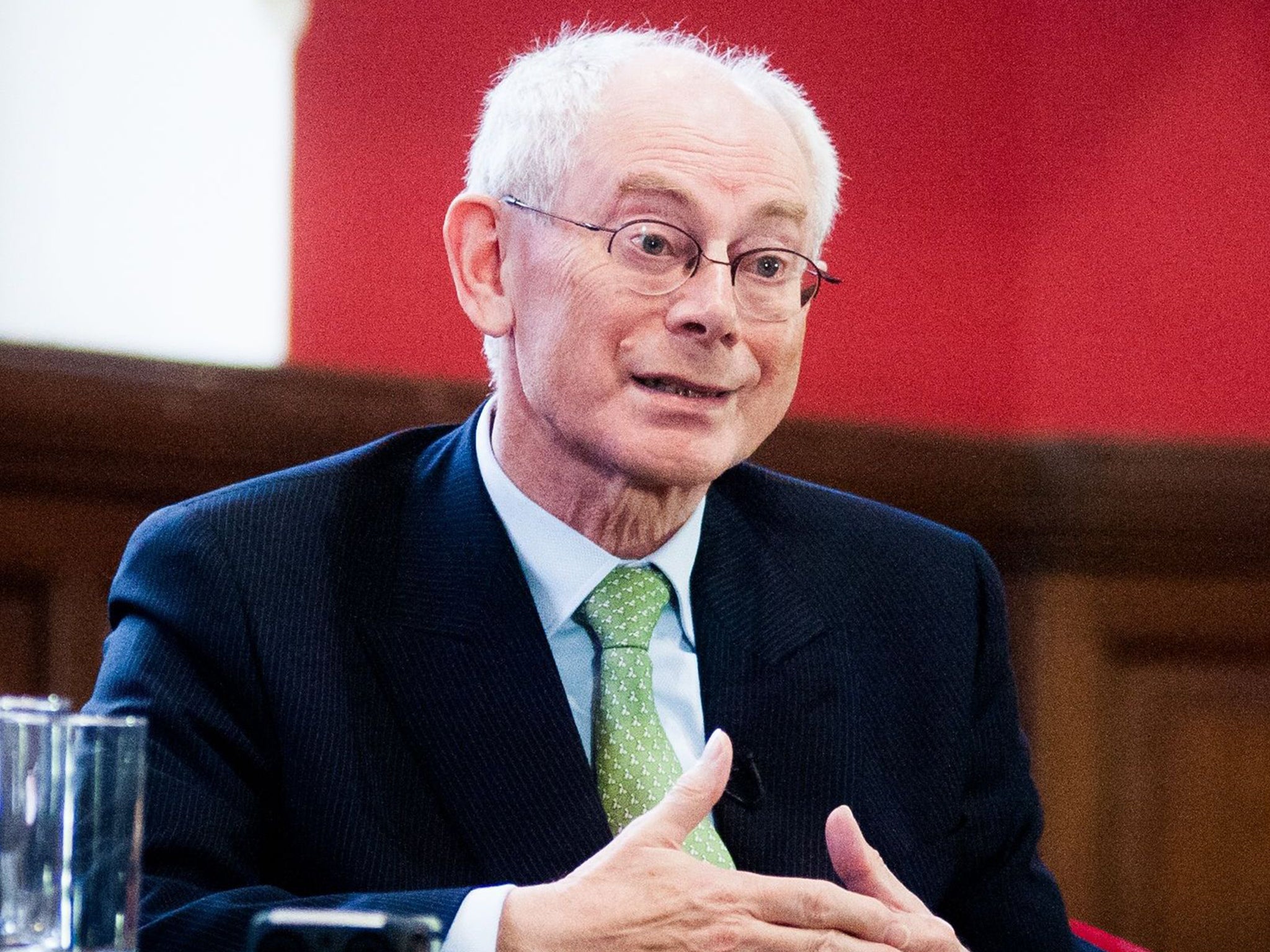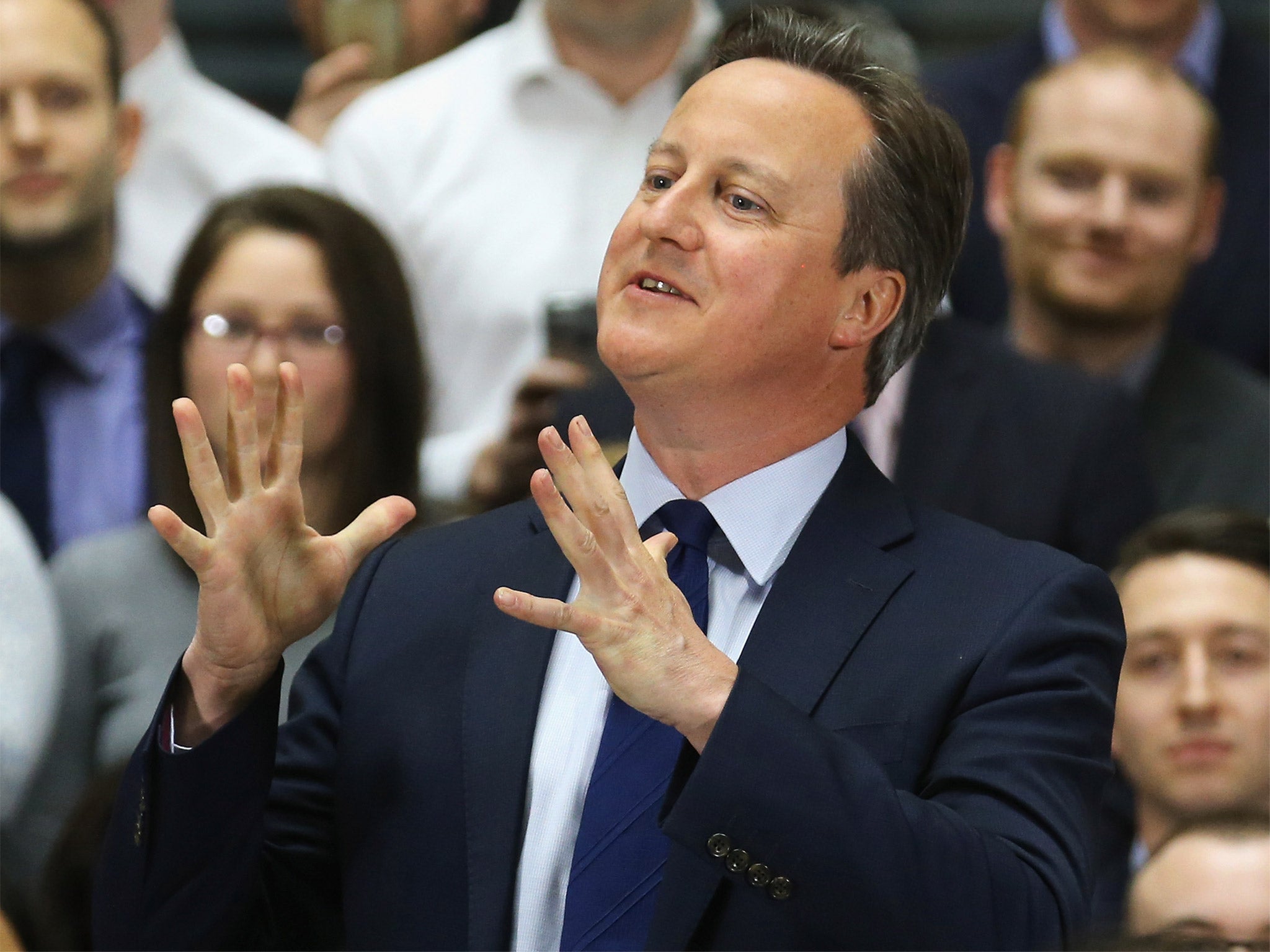David Cameron accused of 'completely undermining' Tory claims to be tough on tax dodgers
PM successfully argued in 2013 for trusts to be treated differently from companies in anti-money laundering rules

Your support helps us to tell the story
From reproductive rights to climate change to Big Tech, The Independent is on the ground when the story is developing. Whether it's investigating the financials of Elon Musk's pro-Trump PAC or producing our latest documentary, 'The A Word', which shines a light on the American women fighting for reproductive rights, we know how important it is to parse out the facts from the messaging.
At such a critical moment in US history, we need reporters on the ground. Your donation allows us to keep sending journalists to speak to both sides of the story.
The Independent is trusted by Americans across the entire political spectrum. And unlike many other quality news outlets, we choose not to lock Americans out of our reporting and analysis with paywalls. We believe quality journalism should be available to everyone, paid for by those who can afford it.
Your support makes all the difference.David Cameron was today accused of "completely undermining" the Government's claims to be tough on tax dodgers after the Prime Minister personally intervened to try to prevent EU transparency rules affecting offshore tax trusts.
The Prime Minister was forced to respond to the scandal after it emerged that he sent a letter to the European Council president Herman van Rompuy in 2013 arguing for trusts to be treated differently from companies in anti-money laundering rules.
Mr Cameron claimed that it was "clearly important we recognise the important differences between companies and trusts".

"This means that the solution for addressing the potential misuse of companies, such as central public registries, may well not be appropriate generally," the letter said.
Labour said Mr Cameron’s position "completely undermined" Tory claims to be determined to act on tax avoidance.
“Another day and another story emerges which exposes what the Conservative Party really thinks in its heart of hearts about tackling tax avoidance,” said Labour’s shadow Treasury minister Richard Burgon.
"The Prime Minister can't raise a finger to save our steel industry but at the drop of a hat he can personally intervene to undermine EU efforts to clamp down on tax avoidance.
"When things like this come out from the very top of the Conservative Party it completely undermines anything they have said previously on this major issue.”

Forced to respond to the allegations, following a speech on Europe in Exeter, Mr Cameron told students he had put tax avoidance at the top of the agenda during his chairmanship of the G8 group of leading nations.
“Britain has been an absolute leader on this and we will continue to do it,” he added.
But Judith Sargentini, the Dutch MEP who led the European Parliament's work on the draft rules, told the Financial Times that she saw the UK’s call for different treatment for trusts as “a danger and a possible loophole".
The revelation adds to the pressure on Mr Cameron after the Panama Papers leak revealed his late father, Ian, had been the director of an offshore fund that allegedly paid no UK tax in 30 years.
Asked about questions over the Prime Minister’s finances on BBC Radio 4’s Today programme, the Defence Secretary Michael Fallon said he did not think “anything more that can be added” to Downing Street’s previous statements.
“These questions were honestly answered from the beginning…he made it very clear he is not benefitting from any offshore trust of this kind."
Challenged by Today programme host John Humphrys on whether Mr Cameron had benefitted in the past, he added: “He’s already answered these questions. He may not have answered them to your satisfaction but these questions have been answered and I’ve nothing more to add to them.”
A Government spokesman said Mr Cameron’s stance was taken because of concerns that seeking to apply registers of "beneficial" owners to trusts "would distract from action against those areas of most concern, such as shell companies".
"In practice, these further changes weren't achievable. In the subsequent negotiations, we were able to secure a sensible way forward which ensures that trusts which generate tax consequences have to report their ownership to HMRC."
The spokesman defended the Government's record on tackling tax evasion and avoidance, pointing to legislation forcing British companies to disclose who owns and benefits from their activities which comes into force in June.
In the latest of a series of clarifications of Mr Cameron’s tax arrangements, Number 10 insisted that neither the PM, his wife Samantha or their children would benefit in the future from offshore funds or trusts.
Labour, however, is still demanding to know however whether they have benefited previously from the arrangement – although there is no suggestion that having done so would have been illegal.
Conservative ministers have, however, insisted that the Government has led the way in fighting tax avoidance, claiming that Mr Cameron has championed a transparency agenda, since at least 2013 when, ahead of a G8 summit, he promised: “I’m going to push for international agreements to fight the scourge of tax evasion and aggressive tax avoidance. That means automatic exchange of information between our tax authorities – so those who to evade tax have nowhere to hide.”
Mr Cameron, though, has faced criticism for failing to secure reforms in all but two of the UK’s overseas territories and Crown Dependencies, which see would see major beneficiaries of offshore companies named in public registers.
Join our commenting forum
Join thought-provoking conversations, follow other Independent readers and see their replies
Comments